Hello World
Hello world! Next four months I will be writing on pedagogy and pedagogical practices. Stay tuned!
Grad 5114 / GEDI Fall 2018
Hello world! Next four months I will be writing on pedagogy and pedagogical practices. Stay tuned!
Hello world! Next four months I will be writing on pedagogy and pedagogical practices. Stay tuned!
I am so glad that I took this class. I’ll be honest here. If I would not have taken the Engineering Ethics and the Public course which was a requirement for another certificate, I would not have thought about taking this class. And though it is not so much fun taking more classes when you have tons of research expectations, I am definitely not going to regret taking ‘Preparing Future Professoriate’ class.
I have gained so much from this class. I was not aware of so many issues going in the higher education and in the world, in general. I believe the diversity of the class is the major driving factor behind the exponential learning curve. Though I have been in classes with different majors and various age groups, this class was by far the most diverse class. Of course, when there are new people, you get an opportunity to make new friends and no doubt, I got to know so many new people because of this class. Just the mere presence of a diverse crowd was not the reason for this learning. The discussions which took place because of that diversity ensued such an enlightening experience. The discussions ranged from race issues to gender issues, accessibility to utility and history to the future.
When Dean DePauw asked us in the first class, what do you expect to learn from this class, I thought about teaching, university policies and some more fields very intimately related to professors and university. One feels satisfied when the expectations are met. But just imagine getting a bonus which is ten times the base salary. It is a euphoric feeling and I can definitely say that I feel that way when I look back at what perspectives I gained from this class. Understanding the education system of the US in depth helped in understanding the limitations of the current system and the steps to be taken for the development of the future system. Learning about the education systems over the world (Thank you to everyone who presented their education system) gave an opportunity to understand how the education has developed and what can be done to enhance the future of the education for everyone.
Overall it was a great experience. That’s the reason I feel this class is not only for the individuals who are thinking to go in academia or higher education. This class is about higher education and everyone who is pursuing higher education should be aware of the issues in the US and around the world. This will help in shaping the future of our society irrespective of the career one chooses later in the life. I am eternally thankful to everyone who participated in this class, to Abram-our fantastic TA and last but the most important person, Dean DePauw for taking the time to teach this class and discuss various aspects of the university education. I am looking forward to the next class in this certificate program ‘Contemporary Pedagogy’. I hope to see some of you there. Have a fantastic summer everyone!
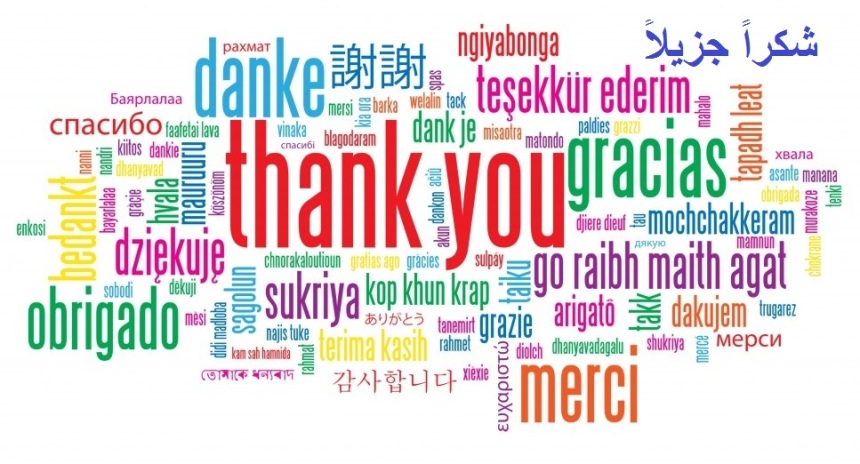
We have had several discussions in the Grad 5104 class regarding the pressure of publications on professors whether for tenure process or for promotion. Professors are under constant pressure to perform. The pressure is not always healthy and may lead to harmful impacts. There are cases of research misconduct. Sometimes, the mistakes are found in the review itself while sometimes the data is published and retracted several years later when someone analyzes it properly. There have been cases reported in publishing where authors have drawn the line on the graph using Paint. What could be leading the authors to go to such extent when they have to falsify and fabricate data.
We, as a scientific community, need to ask ourselves: are we doing too much research? The professors, in order to get that tenure, that funding, that grant, publishes more to prove their worth. But is the research that is conducted and published worth consideration? How is the quality check done? Is the impact factor the only criteria we should be looking to grade the work of the professor? Does the quantity matter that much? PubMed indexed 1.2 million scientific articles in 2011 which was four times from 1980. Are we really doing enough breakthrough innovation to publish four times?
No doubt, we have better facilities and capacities to conduct research. But it is important to understand the difference between new genuine research and repetition with minute manipulation and some different data. If we continue to go through this space, we won’t sustain long before we will have a plethora of same unwanted information available from different sources. The first step towards maintaining a sensible scientific record is to reduce the pressure from professors’ shoulders. Once we achieve that we need to move forward with redefining the meaning of scientific publications and their use. In this step itself, we can focus on bringing a change with making the knowledge as accessible to everyone as possible (Open). Lastly, research from the tax paid by the public should be focused on the public good which is critical. Sure, we would like to have a driverless car and drone to deliver our food but even without them we are surviving and can survive for another few decades without much trouble. However, issues like terminal diseases such as cancer and global warming should have focus as they are posing a threat to our survival and the survival of all the species on the planet.
Human beings are the smartest species on the earth. We need to get our act together and behave like the smartest. If we understand the problems and still don’t act on them then we are no better than those species who don’t have a developed communication system and knowledge of the world and the universe. We need to set the priorities on things and work to achieve them.
This is going to be a fun blog (I am bored of being serious). It is full of assumptions and personal thinking and may have very less scientific proof (sometimes we should just hang the science for a bit). If you are not interested in fiction, I warn you not to go further, you may be disappointed. For the rest of you, let’s go and have some good time (hopefully).
So, the earth has made it to the year 2810. Yes, it is still surviving. The global warming and the melting of that ice have consumed few hundreds of our cities. But finally, we have controlled the temperature. We here mean a mix of human and robotic species. Robots have taken all the mundane and repetitive jobs from the humans. Humans don’t construct, humans don’t manufacture, humans don’t drive (wait there are no cars, just pods running on renewable energy but yes, buses are still here), humans don’t bank and humans don’t fight (oh no, no, I take this back, humans still fight).
If we don’t do any of these then what do we do? Humans are smart (always were). We didn’t give everything to robots. Pure human emotions are still with humans. No, it is not that it was not tried but robots just can’t get that, definitely not all of them. Humans still love, humans still cheat. Humans are teachers, scientists, doctors (and nurses), lawyers, social workers, comedians, painters, musicians, actors, adventurers, and all other arts professionals. Humans still form the root of the society (yes, robots have their own, but it is way too boring for humans). Robots will be creative but only as much necessary. Humans won’t be working for money but for satisfaction. Humans won’t have ‘a job’ but multiple talents and contributing to the economy.
Virginia Tech is still there (you see, why they put it in Blacksburg, middle of nowhere) and ranks first in both humanities and sciences (No, seriously, also MIT is gone, so is Harvard). They realized in 2018 itself that opening a drone park means automation and hence added enhanced focused on humanities (I hope someone with important administrative position reads this block, I am just trying to help). They opened the drone park and tested driverless cars, so they were not going back on sciences. The downtown is still one block long but hey, everyone is having lunch and dinner at the drill field with the food delivered by drones (from any food joint that can be named). There is nothing called as tenure for professors (they finally realized in 2108 that it is a useless system). Knowledge is given without restriction. There is no division of students into undergraduate and graduate. There are just knowledge seekers.
There are so many more things to add but I will just stop here for now (I have to write a couple of more blogs). If you want to add anything, feel free to comment. I also invite all the disappointed souls to vent off their anger and frustration here (hey, I warned you this may be disappointing, you decided to continue). Happy 2810!
We spent 3 weeks on learning about the education system around the world. Every country’s system is different and caters to the needs of their citizens. One thing which was common in most of the systems is the amount of money spent on education. Most countries have none or minimal cost of tuition (public schools and universities). However, the US, on the other hand, has amongst the most expensive education on this planet. So the question naturally arises: why higher education is so expensive in the US?
The tuition, in 1971, for Harvard, one of the most prestigious university in the US and the world, was $2600. If there was the similar support to the universities from the government and if the annual increase in the tuition was tracking the inflation, the tuition would have been about $16,000 this year. However, the present tuition is about $46,000. The cost of education has seen as much as 250% increase in some of the universities in the US. What could have been paid by 13 weeks of median household income, now can consume almost a year worth’ of income. The total student’s debt for education outstands $1.2 trillion.
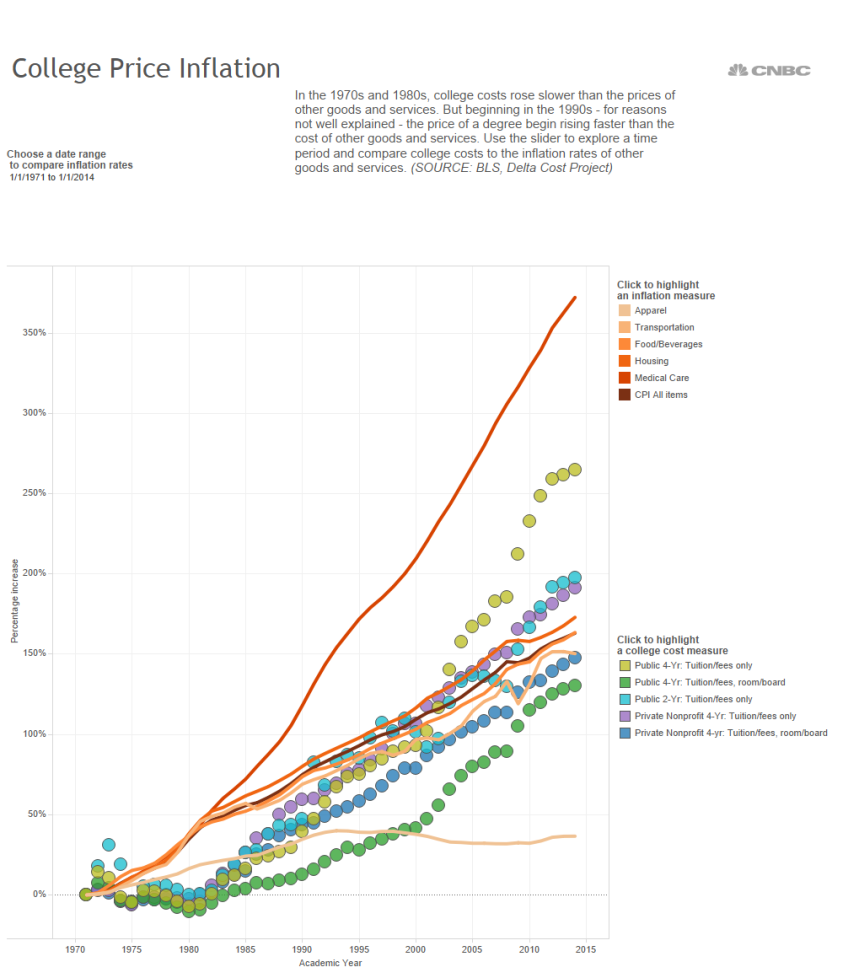
There are many reasons for the sharp increase in the price of higher education. One of the most important reasons is the budget cut. Both the federal government and state government have reduced the budget for higher education. The federal government spends about 9 times more on the military than education. Education is considered a private pursuit than a public good.
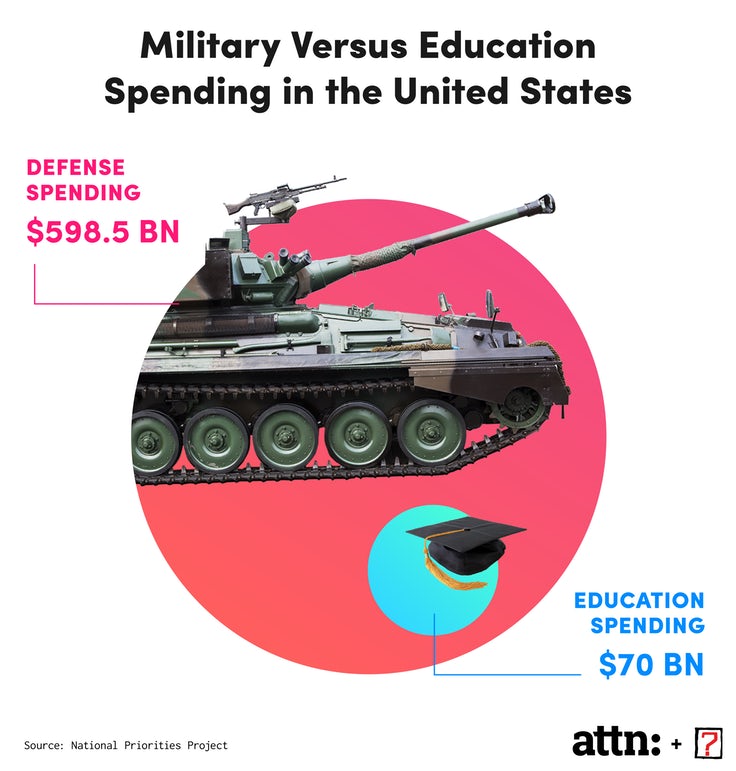
Compared to the US, other countries of the world spend much less on the military. To give a context with respect to the world, next two images show the amount spend on military and the percentage of the military spending with respect to the GDP and the population.
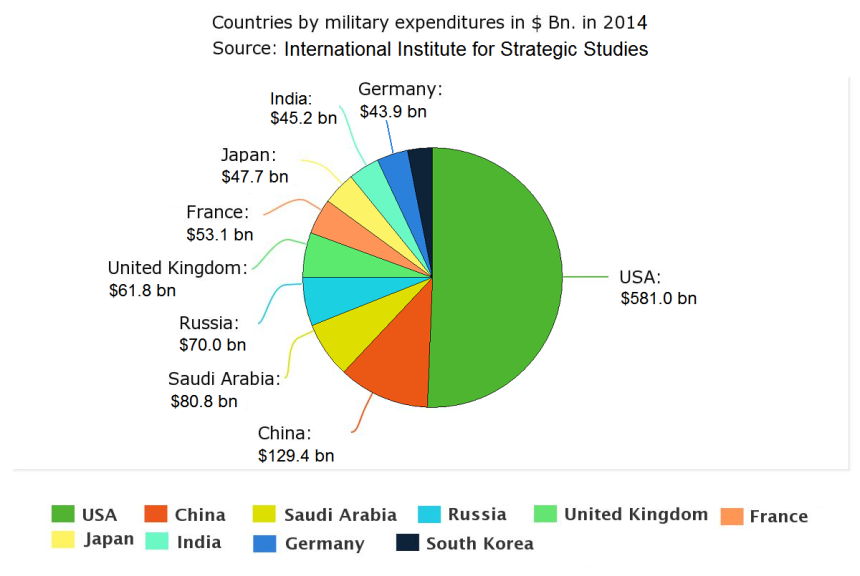
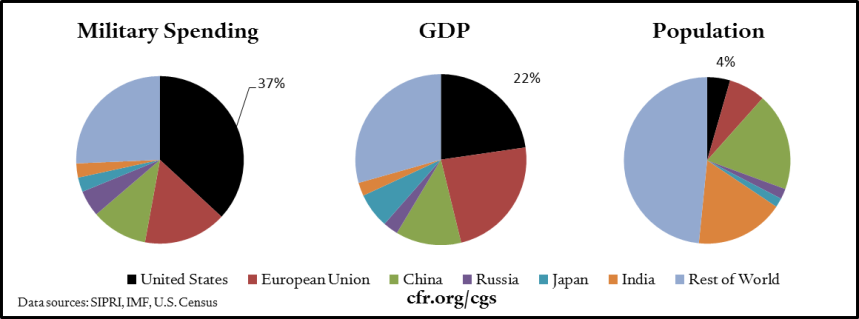
There are several other reasons as well to the increase in the cost. The universities provide more amenities to the students than ever. There are climbing walls’ and lazy river on the campuses. To attract the prospective student, they have to show how they are better than the rival college and the tours can best showcase the amenities present on the campus. Another important factor that increases the cost is the number of administrators and staff. Sure, it is helpful to have a staff for everything, it adds up a lot to the cost to the university which is recovered from the students. There are many other factors but these are amongst the major factors that I could find.
So, the bottom line is it all depends on how long the citizens can tolerate and afford to pay for the higher cost. There are sure ways of reducing the cost. The questions we need to ask are: how is our tax money spent and how do we want it to be spent, what kind of education we want from an educational institution and what we would like to do about it.
Past one year has been the year of speaking against the harassment. It is sad to know the levels and roots of harassment imbibed in the society. At the same time, it is empowering that people of all race, age and gender are coming out against it. The major form of harassment that came to light is sexual harassment. Some allegations came as a surprise while some were just pending for a long time. The list of accused is long and includes Hollywood producers, filmmakers, artists, actors, U.S. Senators, U.S. Representatives, nominees for the election to Senate, legislators, judges, businessmen, publishers, journalists, editors, writers, photographers, coaches and comedians. I could have just stopped at a first few positions but I wanted to continue. We see a huge list of positions here comprising almost all the fields, however, one of the fields is definitely missing. In the popular media, the cases of sexual misconduct and power misuse by academics don’t come to light. It is not a high-profile case for them to get increased ratings. But if they are not reported enough or not public enough don’t mean they are not happening on the campuses around the country. There is a culture of denial in the university environment. In case of students, they know they will get out of the campus in a few years and don’t want to create unnecessary troubles for themselves. They feel they might be seen and treated in an unfair and biased nature. No one wants to put their career in trouble even before it starts. Another misuse of power, prevalent in academia is academic bullying. This is much more common in the university and often taken as ‘this-is-how-it-works’ practice. Dean DePauw views academic bullying as, “Academic bullying manifests itself in many different ways and can include intimidation, humiliation, belittlement, embarrassment and undermining one’s authority”. Though broad in nature it encapsulates every possibility. This was discussed in one of our classes this semester. There were statements from the students that they felt it is happening only with them and there’s something wrong with them. But so many students had the same feelings. As Dean DePauw pointed out that time, if it is happening with so many of us then probably it is not something wrong with us but with our professors. She told to inform any such conduct to their head of the department, or even to herself and she will make sure that proper action is taken with as less disturbance to the student as possible. It is really difficult for the students to come out and say something against a person who is directly influencing the future of the student. It is difficult to put all your efforts and work that you did at stake, especially when you know you will be out of this misery in some time. But I hope the words of Dean DePauw give some assurance and help students seek out help and support when needed. I feel great that Virginia Tech has such a system in place which keeps students on top of their agenda. I hope all other universities will also get such systems and the notion of academic bullying is seen as a misconduct and not a norm.

Education has evolved over many centuries and it continues to do so. From learning the only skills required for survival in the stone age to more concentrated and focused classroom-based lesson for overall development, we have come a long way. Life was simpler in older times when the only thing our species used to do was hunting to find food. They would learn the skills for that and live a content life. They understood the importance and need of that lesson. Over the period of time, life has developed and become more complex. Now we spend nearly quarter of our life learning different concepts and facts about our world and the universe. However, the purpose of the learning is often not known or understood. Our generation learns because we are told that it is necessary to get jobs later. Jobs are required to earn money which in turn can get us food. So, the main idea is still to be able to find (and buy) food but with all the extra processes added in between. It is the trait of us human beings that first we make the process complicated and then try to simplify things. If we don’t create the mess in the first place (in the name of advancement), maybe we won’t have to start cleaning it up later. Many will argue against this point as without advancement the lives won’t have been this comfortable and satisfactory (is it though??). I understand some inventions have really helped progress our race. But I also think that upgrading iPhone 8 to iPhone X (sorry Apple) was not really the kind of comfort we lose so many precious hours of efforts for.
The point here is we are not aware of the reason of all of our education. And it becomes a major issue later. We just follow the norms of the society (which are set by us only) of finishing a degree, getting a good, decent paying job and settle in life. All this without giving a due consideration to the reason we are doing this. If gathering food is the only purpose, we can go back to the hunting times and live a simpler life (though the entire animal population will be depleted sooner than we realize). It is crucial to impart the importance of the education to everyone. It needs to start from the school itself and should not stop there, rather should be more and more emphasized as people move forward in the direction of higher education. No one should become Computer Science engineer just because it has a higher pay (again, sorry for picking on Computer Science major). It should be because the person has skills in that field and can contribute significantly. If the aim of the education is clear, the students will be able to take a well-informed decision. This decision will have serious implications (positive) in the society. In fact, a well-educated society will be able to change the norms already set in favor of more rational ones. If we can’t do that, if we can’t understand the reason why we learn what we learn and more importantly why should we learn, then there is not really a reason to learn. We can just hunt (Animals, and then? Humans?).
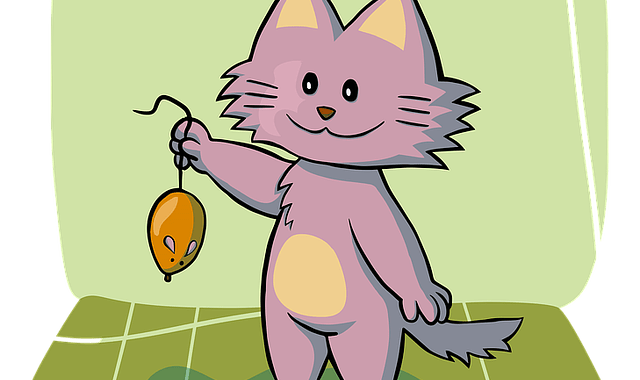
Online learning has seen steep growth over the last decade. With the development and awareness of Massive Open Online Courses (MOOCs), the online education community has proliferated. Online education is opening new possibilities and engaging ever-increasing student population all over the world. There is no doubt that people have benefitted everywhere with the availability of online education. Creating the material and preparing for a course to be taught online is an arduous task and need a focused mind for making the experience smooth. Hence, it is very important to understand the perspectives of the content creators, the faculty members. Yale news published an article where four female faculty members reflected on their experience of online teaching.
According to Diana Kleiner, the Dunham professor of History of Art and Classics and instructor of Roman Architecture MOOC, online education makes the education, epicenter of everyone’s life. She believes that her simultaneous involvement in online and offline teaching allows her to apply pedagogical strategies from one format to other. Faculties are able to adopt different learning experiences for students based on the participation and involvement of the students.
Laurie Santos, a professor of psychology, is building an app with the help of Yale Center for Teaching and Learning to provide helpful information and daily well-being practices. All faculty members believe that they are able to reach many more students than they could ever have without online education. Dr. Anees Chagpar feels hopeful on finding that students enjoy her course on “Introduction to Breast Cancer” and learned something. According to Chagpar, “Having a massive open online course platform really gives you the versatility in terms of how you teach to experiment with different modalities of getting information across that may resonate better with different learners”.
Professors tend to learn from the behavior of the students and the discussion and change their content to satisfy the students’ needs. They have to cross their comfort zone and find new ways of passing the same information in a different, innovative, and engaging way that students feel motivated. The field of online education is not without any challenges. Women faculty members often face discrimination based on their body shapes and clothes. One study reported that women feel lack of understanding and support from their family and colleagues. However, since the field is massive, open and online, it allows to democratize it, feels Dr. Chagpar.
MOOC has still a long way to go before it becomes a normal part of life. The next step might be to make the information accessible in regional languages. However, the progress made is impressive and shows potential for impacting a huge number of citizens all over the world. Faculty members can keep learning from the students and come up with innovative ideas to make learning a great experience for everyone.
Article: https://news.yale.edu/2017/09/25/faculty-members-reflect-their-experiences-digital-teaching
This week’s blog post is about Open Access. Open Access refers to literature that is available online, free of charge and free of some restrictions (copyright/licensing) given the work is properly cited. It sounds exciting to have knowledge run free to all and everyone out there. However, the truth is there are only handful of open access journals and fewer used frequently. So, I tried to look for an open access journal in my discipline. I found two journals. The first one is ‘Journal of Civil and Environmental Engineering’ which accepts work in most of the fields of civil and environmental engineering. Since I am little touchy about my discipline, on a little more research I found another one, ‘International Journal of Energy and Environmental Engineering’ or IJEEE.
The Journal of Civil and Environmental Engineering is run by Omics International Pvt. Ltd. which was founded by a serial entrepreneur and a scientist, Dr. Srinubabu Gedela. Its headquarters is located in Hyderabad, India with regional office locations in many different parts of the world. The journal aims to publish most reliable information on the discoveries and developments in the fields of civil and environmental engineering. The journal is committed to making genuine contributions to the scientific community. Omics International also organizes over 1000 conferences all over the world. The main objective as stated by its founding director is to remove the language barriers in research and making the scientific information accessible to everyone in the world in their preferred language free of cost.
The International Journal of Energy and Environmental Engineering is a peer-reviewed open access journal under the brand SpringerOpen. It aims to provide information to the scientific community working in the field of energy and environmental engineering to discuss and develop the fields further. Though SpringerOpen charges Article-Processing Charges (APC), they are covered for this journal by Islamic Azad University. The SpringerOpen main office is located in the UK and has regional support offices in China, Japan and South Korea. IJEEE provides open access to its readers and growing in terms of readership and publications. It is essential that they develop with the time and try to provide the information to more people around the world.
Coming to the relevance of the two journals, I have not heard of them before this day and this is certainly not a good news. I haven’t seen any publications in the two journals from my department or even from the researchers in my field. As authors try to increase the impact factor of their publications, they try to publish in popular journals and don’t care much about open access. If some articles can be made open access in the journal that they are publishing by means of paying fees or if funded to, they are happy to do it otherwise it is not given much consideration. Open Access has a long way to achieve its goal of providing information to everyone free of cost. I hope the day comes sooner.